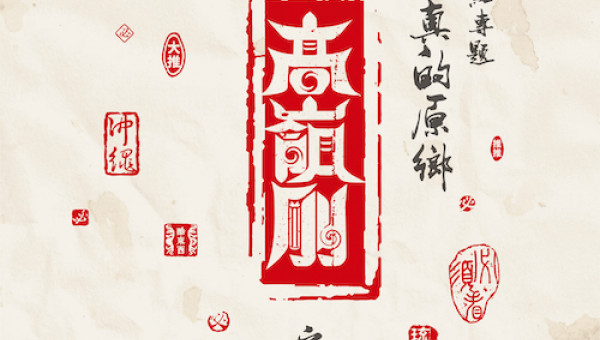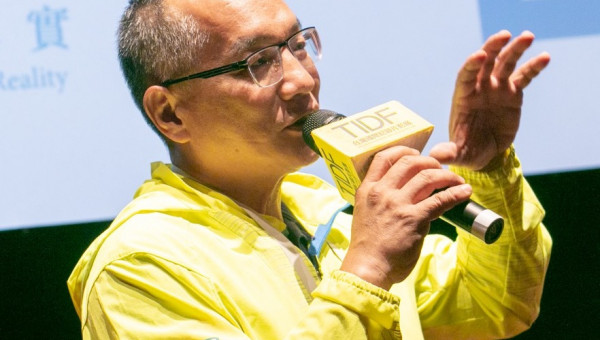Interview with YANG Ming-hui for 2021 TIDF 'Taiwan Spectrum'
2021/08/06 19:50
Please briefly talk about your experience growing up and when you started to become concerned with tribal affairs.
I grew up in Hualien and later passed the entrance exam for the Normal College in Hualien [now National Hualien University of Education] and lived on campus. After graduation, I returned to serve the community. I taught at three different elementary schools before retiring. When I was in college, the child prostitution problem in communities was very serious, but the situation no longer existed after I graduated. That was the first time I became concerned with tribal affairs. I later taught at an Indigenous elementary school, and that’s when I got involved with tribal cultural and social issues.
How did you hear of the Local Documentary Filmmakers Training Scheme? Why did you sign up? What were your expectations?
I was interested in the ecology of centipedes at the time. It was very interesting to watch films about animals on Discovery. I saw the Council for Cultural Affairs’ [today’s Ministry of Culture] ad for the training scheme and signed up to take part in it. My proposal was “The Life of Centipedes.” At the time, I had no concept of humanities or social issues. After I was accepted and began training, the Full Shot Foundation “brainwashed” me. I became interested in issues related to “human”. Because I’m Indigenous, my films all had to do with Indigenous peoples. But Indigenes aren’t necessarily like they’re portrayed in my films.
Please talk about the progression of the half-year training programme. Were there discussions about the filmmaker’s perspective during the course?
There were classes on techniques, such as camera fundamentals. We also watched and analyzed films. Later, we began making three and five-minute clips, mostly teamwork. Finally, we worked on our projects. WU Yii-feng was key to the programme; he always drew our attention to social issues. At the beginning of the programme, I wasn’t sure what my perspective was; he would make us think about how our identities inform our views of things. Later, after slowly acquiring experience and making some films, we’d analyze which parts of the film expressed whose viewpoints. But this is more about the philosophy of documentary filmmaking. The Full Shot Foundation had a big influence on me; it was a turning point for me.
Why did you choose to portray three people in your community in Song of the Wanderer (1996)? What were the audience reactions inside and outside the community?
I’ve known them since childhood. At the time, I could only film after work, so I thought I’d film people in my community. After discussing with my wife, I decided to film them, because I thought there were more stories in them. Full Shot’s programme gave me important thinking for my filmmaking path: Why and for whom do I make this film? It was only later that I realised I wanted to communicate with people through this film. The three protagonists also came from our community. They didn’t choose to suffer from mental illness. No one would choose to experience that!
Their family knew I was filming them. The people in the community watched the film but didn’t have much reaction; what’s more important was communicating with people outside the tribe. I used to think documentary filmmaking was a sacred mission; I had to work hard and make good films so that I could try and change people and the government. But that was impossible; there was no real change.
When did you film The Forgotten Hunting Dance (1997)? What moved you to make it?
It was after Song of the Wanderer, I shot it at the same time as Please Give Us a Job (1997). The elementary school was going to hold a sports meet; the principal was from the Truku tribe but felt modern dances were more spectator-oriented and asked someone from the community to teach. The payi [female elders in Truku] came and said they wanted to teach our own community’s dance. We discussed it with the principal and decided to teach it to the lower grade-levels. The six payi were very enthusiastic and all came and taught the dance together.
I’ve developed a more sensitive mindset through the Full Shot’s training programme and started to realise some things worth documenting. At the time I didn’t think about who I wanted to show it to, I just wanted to record it. When you’re a filmmaker, people would feel you should film the elders, handicrafts, cultural heritage of the community, etc. That’s a burden. They feel that everything should be recorded because the elders will soon die. Everything else you want to film can wait till later.
I also spent a year filming ceremonies in nine Truku villages and applied for a grant from the Council of Indigenous Peoples to complete it, the title is Fading Rainbow (2015). “Rainbow” refers to our traditional belief that people pass over the rainbow bridge after death, to the other shore. “Fading” means that the rainbow has become black and white, that it’s lost its original meaning.
Please Give Us a Job is different from your other works. How did you structure the film?
The film explores Indigenous peoples’ working conditions, about how we want steady work in our local communities, but people say that we Indigenes are always drinking. They don’t realize that there are 800,000 foreign labourers in Taiwan but only 420,000 Indigenes. It’s not that there shouldn’t be any foreign labourers, just that there are too many. Can you guarantee they won’t take away Indigenous peoples’ job opportunities?
The film was purposive and took three months to shoot. WU Yii-feng pointed out an important idea for me. He asked me if I would also include foreign labourers in my film. I said, why should I film foreign labourers? They come here and steal jobs, so why should I film them? But he made me realise that foreign labour is also an unreasonable norm of capitalist economies. So the idea behind the film is that both Indigenes and foreign labourers are exploited.
How did you begin filming Too Young (1997)? How did you and the Full Shot’s training programme see the “intervention” in the shooting?
Many of our teachers are people from the community. Students often come back to chat with the teachers after graduation and go on to junior high. That’s how we got to know all their stories. Later I asked if I could film them and they gladly agreed without hesitation. Teenagers are the hardest subjects to shoot. If there’s no deep research and trust, they won’t let you film them.
The Full Shot’s training programme did talk about intervention, but not everyone understood it. It was only until after I started filming for a while, I gradually began to grasp it. It’s a philosophical question in documentary filmmaking that you can only understand with experience. When you think about how to film something, you’re already intervening; when people interact, they’re always influencing each other. But the Full Shot didn’t talk much about it; it’s a more advanced topic. Just as technical or theoretical issues, all need to be discussed, but the Full Shot didn’t manage to offer an advanced programme.
Why did you stop making films after 1998?
In 1998, I took 44 air flights, taking part in post-screening discussions all over. Elementary school teachers get off work at 4:00 p.m. From Chongde [Elementary School], I’d rush to the airport to catch a 5:30 flight and landed in Taipei around 6:20; then I’d catch a cab to arrive at the venue before 7:00. But I like painting, sculpture, carpentry, and lots of things unrelated to filmmaking. I felt like I’d lost myself; I was exhausted.
Why did you later feel you could start filming again? Today, you’re still making documentaries. What motivates you to keep going?
Filmmakers start making films with strong motivation. But in the process, there’s a lot of pain and stress; it takes courage to persevere. The more complex and difficult the subject matter, the greater the pressure is. You’d want to take a break from filmmaking, and then you’d think, “What am I doing? What’s the next step?” After a while, you’ll ask yourself whether or not to go on making films.
Are you doing any shooting now?
I still want to make films now, but I’ll do it selectively. I give myself ten years to let things settle. I’m now shooting a team of volunteer builders. From not knowing anything about them to following and filming them, I got to know their personalities and thoughts. This will give many Taiwanese a different perspective. I haven’t begun formal filming yet. I was going to send the information about screenings of my films at the 2020 TIDF to the volunteer group, so they know I am a filmmaker. Then, make an official public announcement telling everyone I was going to start shooting a documentary, but there’s a pandemic now, so I’ll wait till next year.
Date: May 8th, 2020
Place: YANG Ming-hui’s home, Hualien
Interviewers: CHEN Wanling, CHUNG Pei-hua, Wood LIN
Editors: CHEN Wanling, CHUNG Pei-hua


